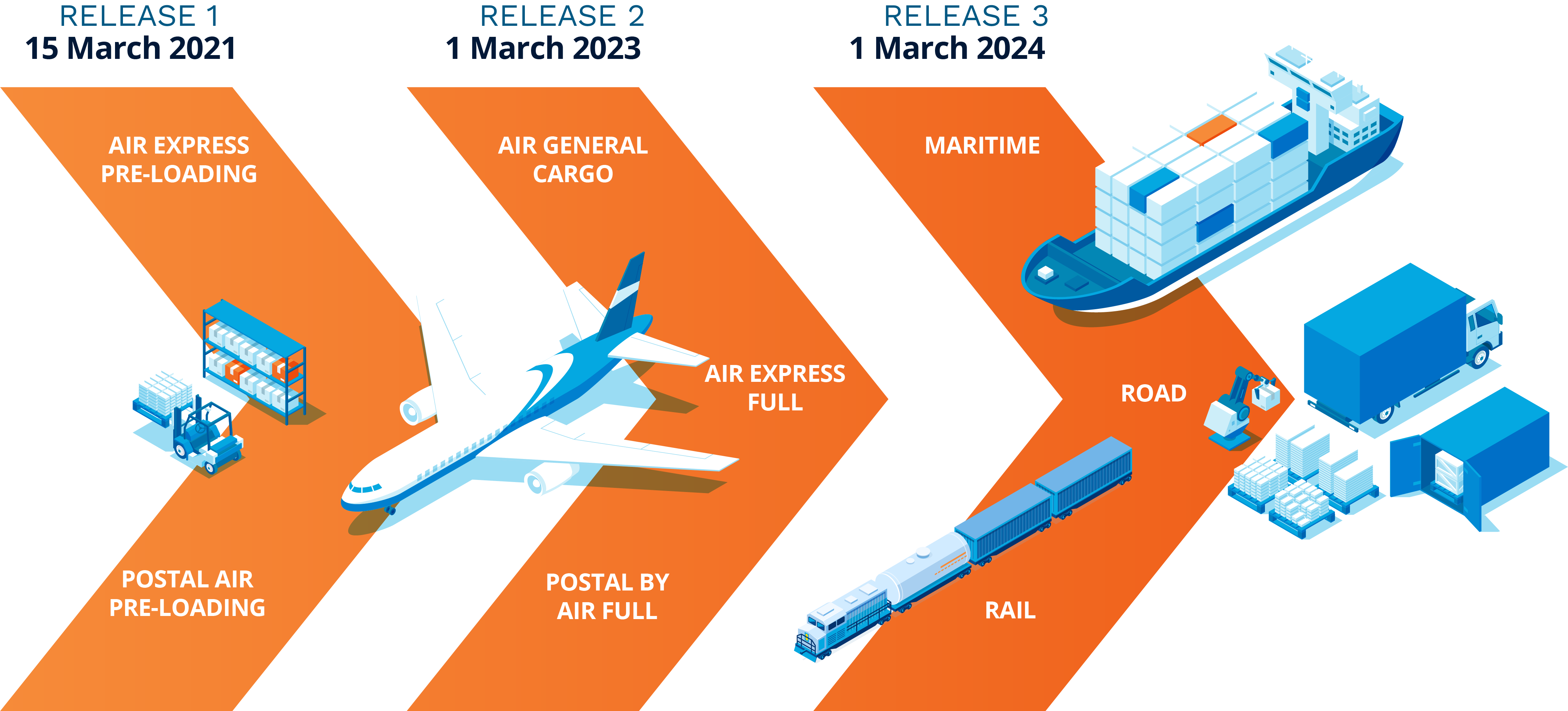Starting March 1, 2023, air freight shippers and their freight forwarders must ensure compliance with Release 2 of the European Union’s (EU) new Import Control System (ICS2) or risk delays and possible fines. The system requires shippers to submit more detailed data, prior to arrival, on all goods shipped to or transiting through the EU, Northern Ireland, Norway, and Switzerland. The Import Control System was instituted to better identify high-risk cargo and protect the citizens of these countries against security and safety threats.
Essentially, the EU is asking for shipment data at a much more granular level. Without the proper HS code and a detailed description of goods at the line-item level, the shipment security filing cannot be done on time and your shipment will likely be delayed.
In your product descriptions, rather than saying “textiles,” be more explicit, like “men’s sweatshirts made of 100% cotton.” Rather than saying “medical equipment,” say “syringes for taking blood samples.” Check out the European Commission’s guidance on acceptable and unacceptable terms for the description of goods.
The new requirements for granular-level data have been in place for a year for express and postal shipments. Enforcement for air cargo (Release 2) is just beginning, with Release 3 enforcement (maritime, road and rail) scheduled for March 2024.

Requirements of ICS2
Before departure, the air carrier or air cargo freight forwarder must submit pre-loading advanced cargo information to European country customs authorities for review. The data really needs to be provided to your forwarder at the booking stage since the details need to be loaded into their system to ensure proper documentation is submitted to airlines prior to departure. This data set is also sent to the ICS2 system. The pre-loading and pre-arrival messages are referred to as the Entry Summary Declaration (ENS).
ICS2 compliance requires submission of detailed information, including several new data fields.
- Name and address of the shipper
- Name and address of the consignee
- Number of packages
- Gross weight
- Description of the goods that is precise and communicated in plain language to promote clear and immediate understanding by customs authorities (NEW)
- 6-digit HS code (NEW) for every different product in the shipment
- Air waybill identifier (MAWB/HAWB)
- Economic Operators Registration and Identification (EORI) number of the consignee (NEW) (The EORI number is the ID number for customs transactions used by businesses that import or export goods into or out of the EU)
After evaluating the data, EU customs assigns each shipment one of 4 status ratings: 1) Approved to load, 2) Request for information, 3) Request for screening, 4) Do not load.
Failure to adhere to the new data requirements risks an unfavorable status rating and the accompanying consequences, which could include:
- Shipment being put on hold
- Rejection of shipment and possible intervention by customs authorities
- Fines and possible sanctions
- Disruption of your supply chain and unhappy customers
In addition, it’s important to note that the appropriate responsible party must pay the costs for waiting times, storage fees and efforts associated with inspections or other correction procedures.
What can you do?
Air freight shippers have had a full year or more to prepare for the enhanced data requirements of ICS2. Going forward, the EU customs authorities will focus on ICS2 enforcement, versus education. Shippers must ensure that accurate data is being provided to their logistics partners.
Those same partners can be a resource for any questions or concerns you might have about ICS2 compliance. For companies shipping goods from Asia into EU countries, reach out to Dimerco to discuss your shipping and compliance requirements.